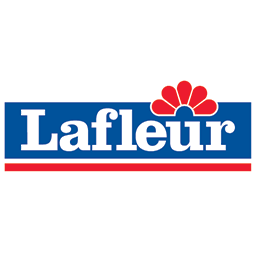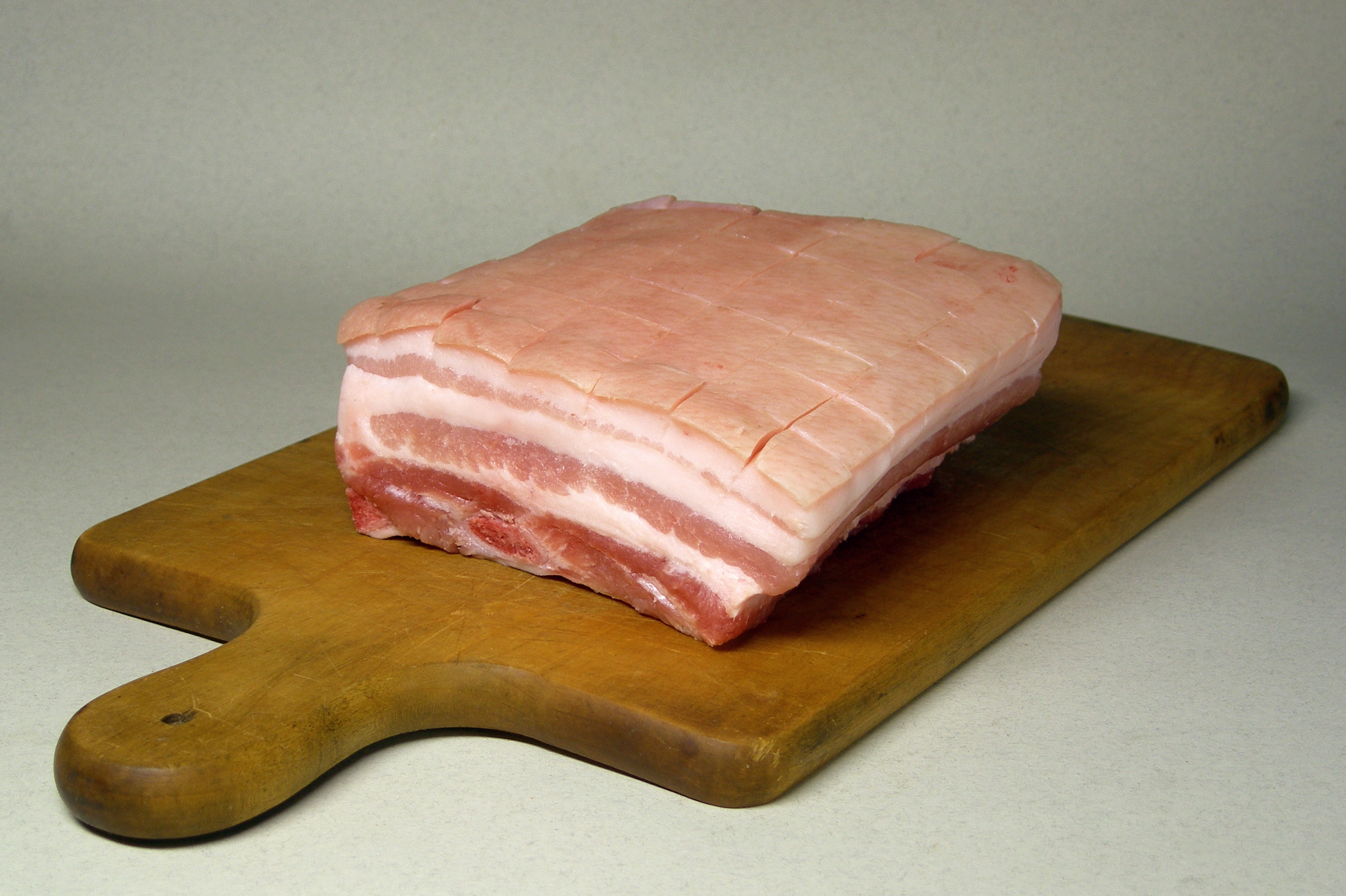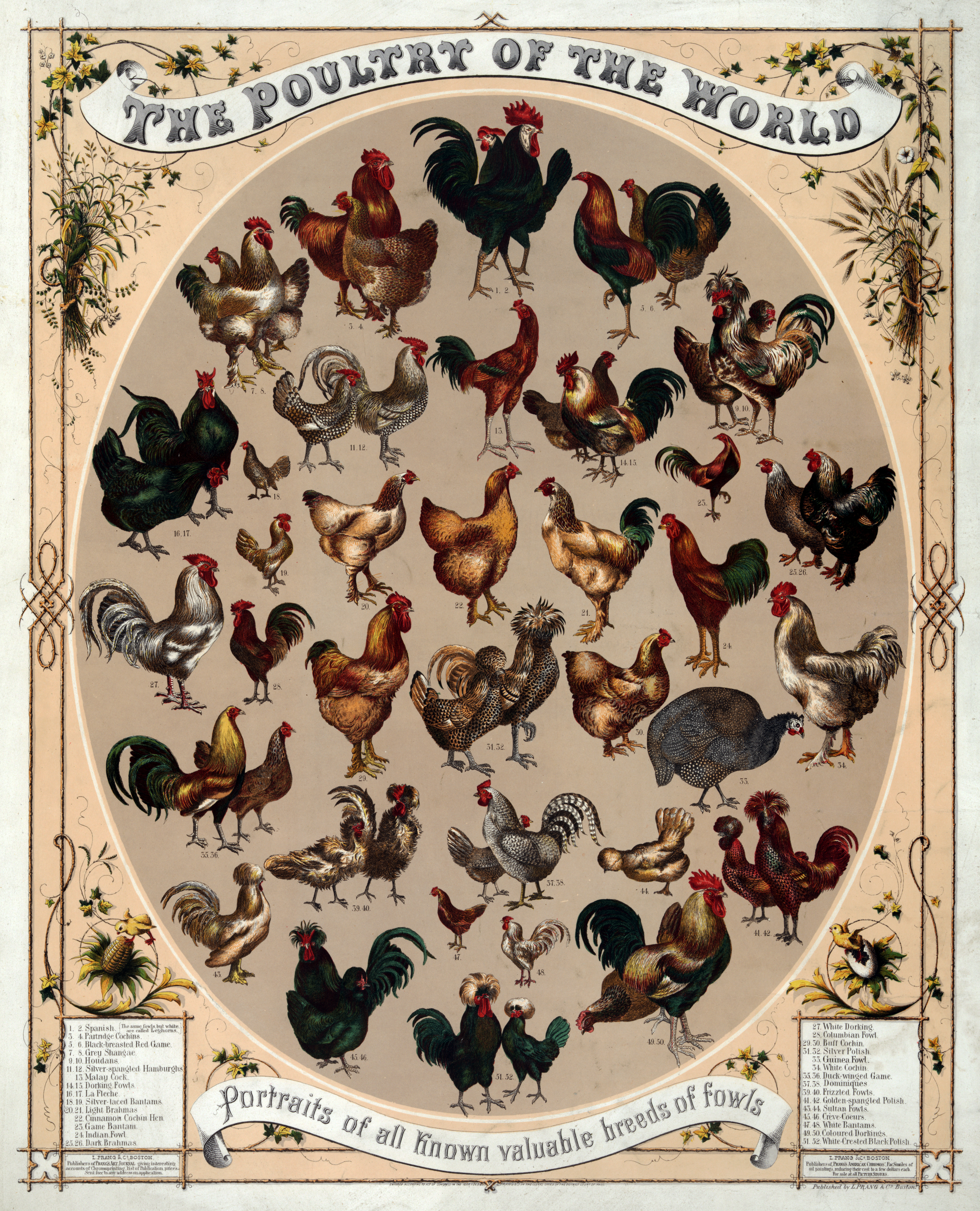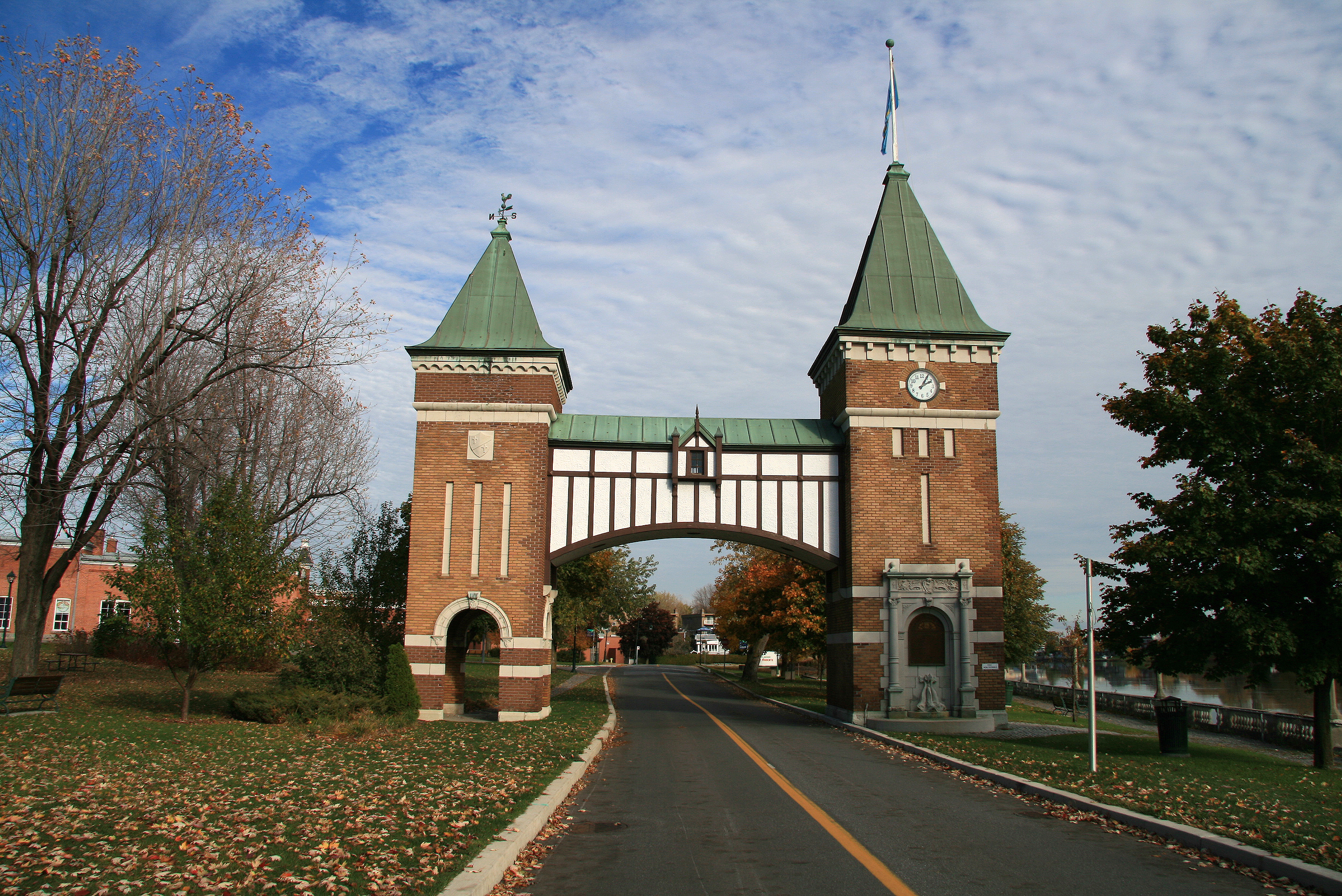|
Olymel
Olymel is a Canadian meat packing food processing company, a producer of pork and poultry products, based in Saint-Hyacinthe, Quebec. The company's majority shareholder is Sollio Cooperative Group, previously La Coop fédérée, Canada's largest co-operative company. It employs more than 10,000 people and exports its products to more than 60 countries. The products are sold under the Olymel, Lafleur (brand), Lafleur, Flamingo, Prince, Galco and La Fernandière brands. In 2006–2007, the company had a labor dispute with the Confédération des syndicats nationaux, CSN union. In 2019, China suspended the meat export permits of Olymel, which affected the company's processing plant in Red Deer, Alberta. According to the Canadian Pork Council, it was caused by mislabelling. In 2021, there was another labour dispute. External links * References Meat companies of Canada Meat processing in Canada Companies based in Saint-Hyacinthe Meat packers {{Food-company-stub ... [...More Info...] [...Related Items...] OR: [Wikipedia] [Google] [Baidu] |
Lafleur (brand)
Lafleur is a trademark of Olymel (l.p.), owned by . The cooked meats brand, specializing in the processing of pork products, was founded in 1912 by Alphonse Lafleur (1882-1934). Lafleur products are exclusively sold in Quebec. Description Lafleur is a specialized brand in the Quebec meat processing industry. Over seventy products are sold under this trademark, including their smoked sausages, which are among the best selling in Quebec. Their products are divided into 8 categories: fresh bacon, fully cooked bacon, smoked sausages, fresh sausages, ham, deli, sliced deli and spreads, like cretons or head cheese. Since 2005, Lafleur has been owned by Olymel, l.p., headquartered in Saint-Hyacinthe, Quebec. They employ nearly 10,000 people in Canada. Lafleur produces 15 million kilograms of products each year. Most of their products are made in the Québec region.. The Lafleur brand is visible at many public venues in Québec and at major events in the area of entertainment and ... [...More Info...] [...Related Items...] OR: [Wikipedia] [Google] [Baidu] |
Sollio Cooperative Group
Sollio Cooperative Group () is a cooperative of agricultural producers in Quebec, Canada. It was previously known as the La Coop fédérée and Coopérative fédérée de Québec, which was founded in 1922. Structure Sollio is composed of a hundred affiliated cooperatives, owned by 108,000 members. The Sollio network employs nearly 16,000 people and had a turnover of 9.1 billion Canadian dollars in 2014. Some brands or companies that it has owned or still owns are: * Olymel is Canada's largest exporter of pork and poultry products. * The "Lactel Group" was the largest private exporter of dairy products in Canada and was sold to "Agropur" in 2000. In 1992, Lactel was involved in a dispute between the Canadian and American governments over the Canada–United States Free Trade Agreement of 1989 and the Puerto Rican Health and Safety Puerto, a Spanish word meaning ''seaport'', may refer to: Places *El Puerto de Santa María, Andalusia, Spain *Puerto, a seaport town in Cagayan ... [...More Info...] [...Related Items...] OR: [Wikipedia] [Google] [Baidu] |
Meat Packing
The meat-packing industry (also spelled meatpacking industry or meat packing industry) handles the slaughtering, processing, packaging, and distribution of meat from animals such as cattle, pigs, sheep and other livestock. Poultry is generally not included. This greater part of the entire meat industry is primarily focused on producing meat for human consumption, but it also yields a variety of by-products including hides, dried blood, protein meals such as meat & bone meal, and, through the process of rendering, fats (such as tallow). In the United States and some other countries, the facility where the meat packing is done is called a ''slaughterhouse'', ''packinghouse'' or a ''meat-packing plant''; in New Zealand, where most of the products are exported, it is called a ''freezing works''. An abattoir is a place where animals are slaughtered for food. The meat-packing industry grew with the construction of the railroads and methods of refrigeration for meat preservation. R ... [...More Info...] [...Related Items...] OR: [Wikipedia] [Google] [Baidu] |
Food Processing
Food processing is the transformation of agricultural products into food, or of one form of food into other forms. Food processing includes many forms of processing foods, from grinding grain to make raw flour to home cooking to complex industrial methods used to make convenience foods. Some food processing methods play important roles in reducing food waste and improving food preservation, thus reducing the total environmental impact of agriculture and improving food security. Primary food processing is necessary to make most foods edible, and secondary food processing turns the ingredients into familiar foods, such as bread. Tertiary food processing has been criticized for promoting overnutrition and obesity, containing too much sugar and salt, too little fiber, and otherwise being unhealthful in respect to dietary needs of humans and farm animals. Process Primary food processing Primary food processing turns agricultural products, such as raw wheat kernels or livest ... [...More Info...] [...Related Items...] OR: [Wikipedia] [Google] [Baidu] |
Pork
Pork is the culinary name for the meat of the domestic pig (''Sus domesticus''). It is the most commonly consumed meat worldwide, with evidence of pig husbandry dating back to 5000 BCE. Pork is eaten both freshly cooked and preserved; curing extends the shelf life of pork products. Ham, gammon, bacon, and sausage are examples of preserved pork. Charcuterie is the branch of cooking devoted to prepared meat products, many from pork. Pork is the most popular meat in the Western world, particularly in Central Europe. It is also very popular in East and Southeast Asia ( Mainland Southeast Asia, Philippines, Singapore, and East Timor). The meat is highly prized in Asian cuisines, especially in Mainland China, for its fat content and texture. Some religions and cultures prohibit pork consumption, notably Islam and Judaism. History Pigs were domesticated in Mesopotamia around 13,000 BC. Charcuterie is the branch of cooking devoted to prepared meat products such as ... [...More Info...] [...Related Items...] OR: [Wikipedia] [Google] [Baidu] |
Poultry
Poultry () are domesticated birds kept by humans for their eggs, their meat or their feathers. These birds are most typically members of the superorder Galloanserae (fowl), especially the order Galliformes (which includes chickens, quails, and turkeys). The term also includes birds that are killed for their meat, such as the young of pigeons (known as squabs) but does not include similar wild birds hunted for sport or food and known as game. The word "poultry" comes from the French/Norman word ''poule'', itself derived from the Latin word ''pullus'', which means "small animal". Recent genomic study involving the four extant Junglefowl species reveals that the domestication of chicken, the most populous poultry species, occurred around 8,000 years ago in Southeast Asia - although this was previously believed to have occurred later - around 5,400 years ago - in Southeast Asia. The process may have originally occurred as a result of people hatching and rearing young birds fro ... [...More Info...] [...Related Items...] OR: [Wikipedia] [Google] [Baidu] |
Saint-Hyacinthe
Saint-Hyacinthe (; French: ) is a city in southwestern Quebec east of Montreal on the Yamaska River. The population as of the 2021 Canadian census was 57,239. The city is located in Les Maskoutains Regional County Municipality of the Montérégie region, and is traversed by the Yamaska River. Quebec Autoroute 20 runs perpendicular to the river. Saint-Hyacinthe is the seat of the judicial district of the same name. History Jacques-Hyacinthe Simon dit Delorme, owner of the seigneurie, started its settlement in 1757. He gave his patron saint name (Saint Hyacinth the Confessor of Poland) to the seigneurie, which was made a city in 1850. St. Hyacinth's Cathedral is the seat of the Roman Catholic Diocese of Saint-Hyacinthe. It was erected in 1852. 2001 merger As part of the 2000–06 municipal reorganization in Quebec, on 27 December 2001, the city of Saint-Hyacinthe amalgamated with five neighbouring towns (listed here with their populations as of 2001): * Saint-Hyacinthe ... [...More Info...] [...Related Items...] OR: [Wikipedia] [Google] [Baidu] |
Quebec
Quebec ( ; )According to the Canadian government, ''Québec'' (with the acute accent) is the official name in Canadian French and ''Quebec'' (without the accent) is the province's official name in Canadian English is one of the thirteen provinces and territories of Canada. It is the largest province by area and the second-largest by population. Much of the population lives in urban areas along the St. Lawrence River, between the most populous city, Montreal, and the provincial capital, Quebec City. Quebec is the home of the Québécois nation. Located in Central Canada, the province shares land borders with Ontario to the west, Newfoundland and Labrador to the northeast, New Brunswick to the southeast, and a coastal border with Nunavut; in the south it borders Maine, New Hampshire, Vermont, and New York in the United States. Between 1534 and 1763, Quebec was called ''Canada'' and was the most developed colony in New France. Following the Seven Years' War, Quebec b ... [...More Info...] [...Related Items...] OR: [Wikipedia] [Google] [Baidu] |
Confédération Des Syndicats Nationaux
The Confédération des syndicats nationaux (CSN; Confederation of National Trade Unions) is the second largest trade union federation in Quebec by membership. History It was founded in Hull in 1921 as the ''Confédération des travailleurs catholiques du Canada'' (Catholic Workers Confederation of Canada). It became the CSN only in 1960 when it became secular. The CSN developed a close relationship with the Quebec Liberal Party and worked together to reform Québec's labor law in 1965 to extend collective bargaining to government employees. However, by the late 1960s the CSN had fallen out of favor with the provincial government as it became radicalized and threw its support behind social movements. In 1971, the three leading Quebec unions, the CSN, the CEQ teacher's union, and the Québec Federation of Labour ( FTQ) voted to form the Common Front, a syndicalist organization demanding a unified minimum wage for their 250,000 members. When negotiations failed between the Com ... [...More Info...] [...Related Items...] OR: [Wikipedia] [Google] [Baidu] |
La Presse (Canada)
, founded in 1884, is a French-language digital newspaper published daily in Montreal, Quebec, Canada. It is owned by an independent nonprofit trust. ' was formerly a broadsheet daily, considered a newspaper of record in Canada. Its Sunday edition was discontinued in 2009, and the weekday edition in 2016. The weekend Saturday printed edition was discontinued on 31 December 2017, turning ' into an entirely digital newspaper. Audience and sections ' is published on its website, .ca, and its mobile app, . The newspaper targets an educated, middle-class readership. Its main competitors are two Montreal print dailies, the tabloid-format ', which aims at a more populist audience, and the more left-leaning broadsheet . ' comprises several sections, dealing individually with arts, sports, business and economy and other themes. Its Saturday print edition (now discontinued) contained over 10 sections. The newspaper's archives from 2000 to 2019 are available on its website. History The ... [...More Info...] [...Related Items...] OR: [Wikipedia] [Google] [Baidu] |
Meat Companies Of Canada
Meat is animal flesh that is eaten as food. Humans have hunted, farmed, and scavenged animals for meat since prehistoric times. The establishment of settlements in the Neolithic Revolution allowed the domestication of animals such as chickens, sheep, rabbits, pigs, and cattle. This eventually led to their use in meat production on an industrial scale in slaughterhouses. Meat is mainly composed of water, protein, and fat. It is edible raw but is normally eaten after it has been cooked and seasoned or processed in a variety of ways. Unprocessed meat will spoil or rot within hours or days as a result of infection with, and decomposition by, bacteria and fungi. Meat is important to the food industry, economies, and cultures around the world. There are nonetheless people who choose to not eat meat (vegetarians) or any animal products (vegans), for reasons such as taste preferences, ethics, environmental concerns, health concerns or religious dietary rules. Terminology The w ... [...More Info...] [...Related Items...] OR: [Wikipedia] [Google] [Baidu] |
Meat Processing In Canada
Meat is animal flesh that is eaten as food. Humans have hunted, farmed, and scavenged animals for meat since prehistoric times. The establishment of settlements in the Neolithic Revolution allowed the domestication of animals such as chickens, sheep, rabbits, pigs, and cattle. This eventually led to their use in meat production on an industrial scale in slaughterhouses. Meat is mainly composed of water, protein, and fat. It is edible raw but is normally eaten after it has been cooked and seasoned or processed in a variety of ways. Unprocessed meat will spoil or rot within hours or days as a result of infection with, and decomposition by, bacteria and fungi. Meat is important to the food industry, economies, and cultures around the world. There are nonetheless people who choose to not eat meat (vegetarians) or any animal products (vegans), for reasons such as taste preferences, ethics, environmental concerns, health concerns or religious dietary rules. Terminology The w ... [...More Info...] [...Related Items...] OR: [Wikipedia] [Google] [Baidu] |









